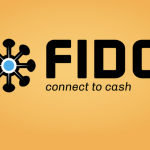This website uses cookies so that we can provide you with the best user experience possible. Cookie information is stored in your browser and performs functions such as recognising you when you return to our website and helping our team to understand which sections of the website you find most interesting and useful.

The Rise of Mobile Banking in Ghana: A Comprehensive Exploration


In recent years, the landscape of financial services in Ghana has undergone a revolutionary transformation with the advent of mobile banking. This article delves into the impact of mobile banking on financial inclusion, highlighting the background, the profound influence on Ghana’s financial landscape, and the challenges and opportunities that define this dynamic sector.
Background
Bridging the Divide: Financial Inclusion as the Engine of Economic Development
In the intricate dance of economic development, financial inclusion emerges as a linchpin, dictating the pace and breadth of progress. However, this narrative is tinged with a stark reality—a significant segment of Ghana’s population found themselves on the periphery of financial services, confined to the ranks of the unbanked.
The Alarming Disparity
Unveiling the Numbers
As of 2017, the World Bank’s data cast a revealing light on the state of financial inclusion in Ghana. A mere 34% of adults held the key to a bank account, leaving a staggering 66% on the fringes of formal financial participation. This statistical chasm underscores the urgent need for interventions to bridge this divide and harness the untapped potential latent within the unbanked population.
The Implications of Exclusion
Stifled Opportunities
The implications of this financial exclusion ripple across the economic landscape. For those excluded, avenues for savings, investments, and access to credit are not just limited but often inaccessible. This limitation stifles the potential for economic growth at both the individual and collective levels.
Perpetuating Inequality
Financial exclusion is not just an economic challenge; it is a harbinger of inequality. The unbanked are denied the tools to uplift themselves economically, perpetuating a cycle of disparity and limiting the ability of communities to break free from the shackles of poverty.
Financial Inclusion as the Antidote
Democratizing Economic Participation
The essence of financial inclusion lies in democratizing economic participation. By extending the reach of formal financial services, individuals previously excluded can actively engage in economic activities, fostering a more inclusive and dynamic economic ecosystem.
Unlocking the Entrepreneurial Spirit
For the unbanked, financial inclusion is akin to unlocking a treasure trove of possibilities. It provides them with the means to channel their entrepreneurial spirit, take calculated risks, and participate in economic ventures that were once beyond their reach.
Pathways to Inclusion
Leveraging Technological Advancements
In a world where technology serves as a bridge between gaps, leveraging digital solutions becomes paramount. Technological advancements, particularly in the realm of mobile banking, hold the promise of reaching the unbanked where traditional brick-and-mortar institutions fall short.
Policy Interventions
Policy plays a pivotal role in dismantling barriers to financial inclusion. Government-led initiatives and regulations that foster an environment conducive to banking accessibility can pave the way for a more inclusive financial landscape.
The Call to Action
A Collective Responsibility
Addressing the issue of financial exclusion is not the sole responsibility of financial institutions or policymakers. It is a collective endeavor that necessitates collaboration between government bodies, financial institutions, and the private sector to create holistic and sustainable solutions.
Charting a Path Forward
The narrative of financial inclusion in Ghana is at a crossroads, presenting both a challenge and an opportunity. As efforts intensify to bring the unbanked into the fold of formal financial services, the potential for economic development becomes a shared vision—one that holds the promise of prosperity for all. Bridging the divide is not just an economic imperative; it is a moral and collective commitment to creating a more equitable and inclusive society.
Financial Inclusion as a Catalyst for Economic Development
– The Unbanked Population
- Despite the critical role of financial services in economic development, a substantial proportion of Ghanaians remained unbanked.
- According to the World Bank, only 34% of adults in Ghana possessed a bank account in 2017.
The Emergence of Mobile Banking as a Solution
– Addressing Financial Exclusion
- Mobile banking surfaced as a viable solution to the issue of financial exclusion.
- Leveraging the widespread availability of mobile phones and the internet, mobile banking providers aimed to extend financial services to users irrespective of their location or income level.
Impact of Mobile Banking on Financial Inclusion in Ghana
Unprecedented Growth in Mobile Money Accounts
– Statistical Growth
- The Bank of Ghana reported a remarkable surge in registered mobile money accounts, skyrocketing from 1.4 million in 2012 to an astonishing 15.3 million in 2020.
- This exponential growth is attributed to increased mobile phone accessibility and the establishment of a robust mobile banking ecosystem.
Accessibility for a Diverse User Base
– Inclusivity Beyond Traditional Banking
- Mobile banking’s key advantage lies in its accessibility, catering to a diverse user base without imposing minimum balance or fixed income restrictions.
- Particularly beneficial in rural areas where traditional banking services may be scarce, mobile banking bridges the gap.
Affordability and Cost Reduction
– Economic Cost Comparison
- Unlike traditional banking, which often entails high fees and maintenance charges, mobile banking providers frequently offer low or no fees for transactions.
- This affordability factor has contributed significantly to the widespread adoption of mobile banking services.
Advancement to Advanced Financial Products
– Beyond Basic Services
- Mobile banking’s impact extends beyond basic services, paving the way for advanced financial products such as loans and savings accounts.
- These tailor-made products cater to the unique needs of users, providing avenues for credit and investment previously elusive through traditional banking.
Challenges and Opportunities
Regulatory Challenges
– Regulatory Framework Concerns
- The regulatory framework established by the Bank of Ghana frames mobile banking operations, but concerns linger regarding the efficacy of regulatory oversight.
- The article delves into the challenges associated with effective sector monitoring and regulatory compliance.
Interoperability Hindrance
– Cross-Provider Transactions
- A significant challenge lies in interoperability, as mobile money providers in Ghana operate on separate platforms.
- This fragmentation can deter users, highlighting the need for seamless cross-provider transactions.
Opportunities Amidst Challenges
– Growing Market Potential
- Despite challenges, mobile banking providers in Ghana are presented with vast opportunities as more Ghanaians gain access to mobile phones and the internet.
- Leveraging transaction data, providers can tailor financial products and services to enhance overall financial inclusion.
Mobile banking’s ascent in Ghana signifies a pivotal shift in the financial services landscape. This comprehensive exploration highlights its impact on financial inclusion, showcasing statistical growth, accessibility benefits, and affordability advantages. While challenges like regulatory concerns and interoperability persist, opportunities abound for providers to tap into a burgeoning market and further refine financial inclusion in the nation.








